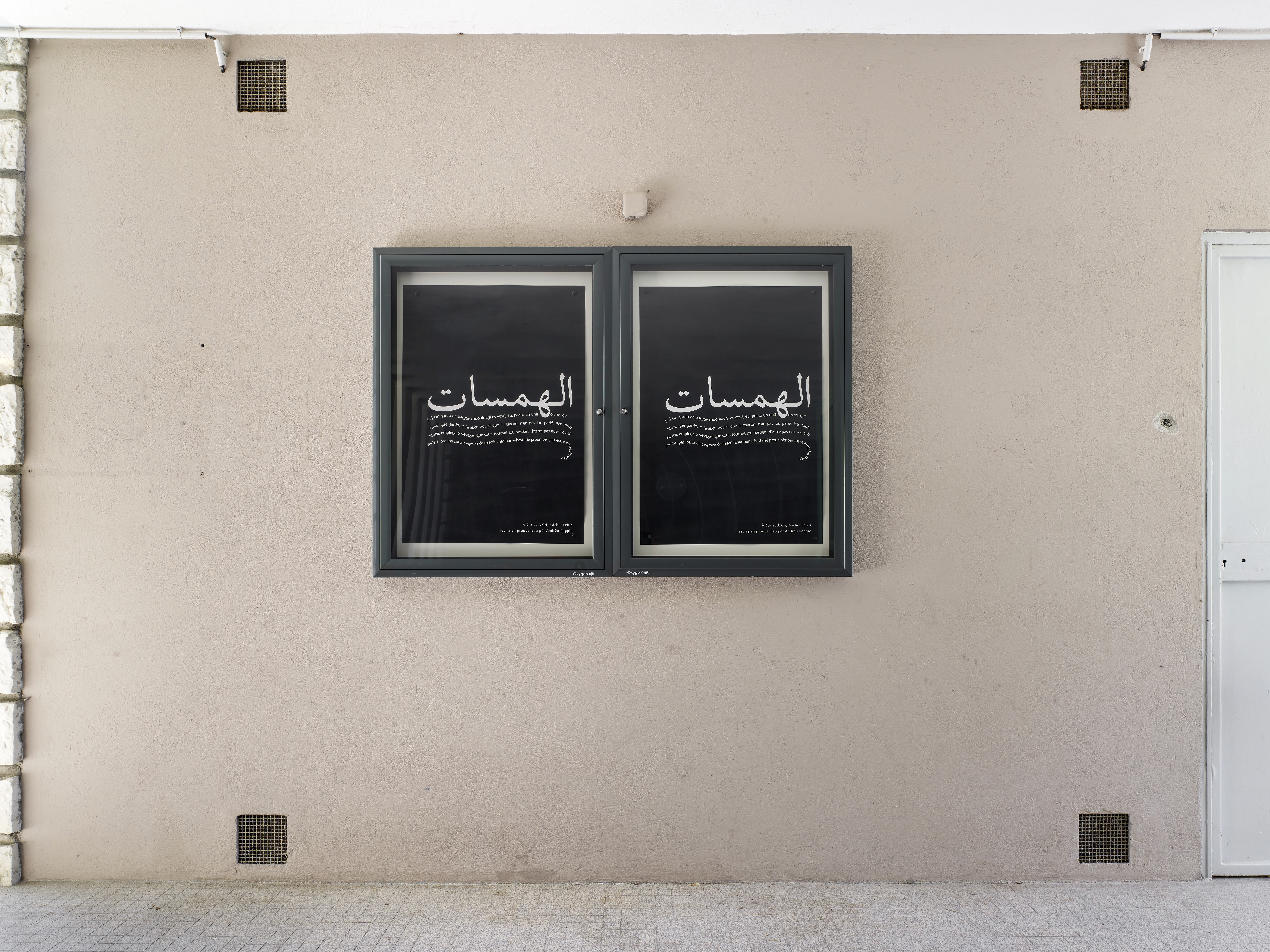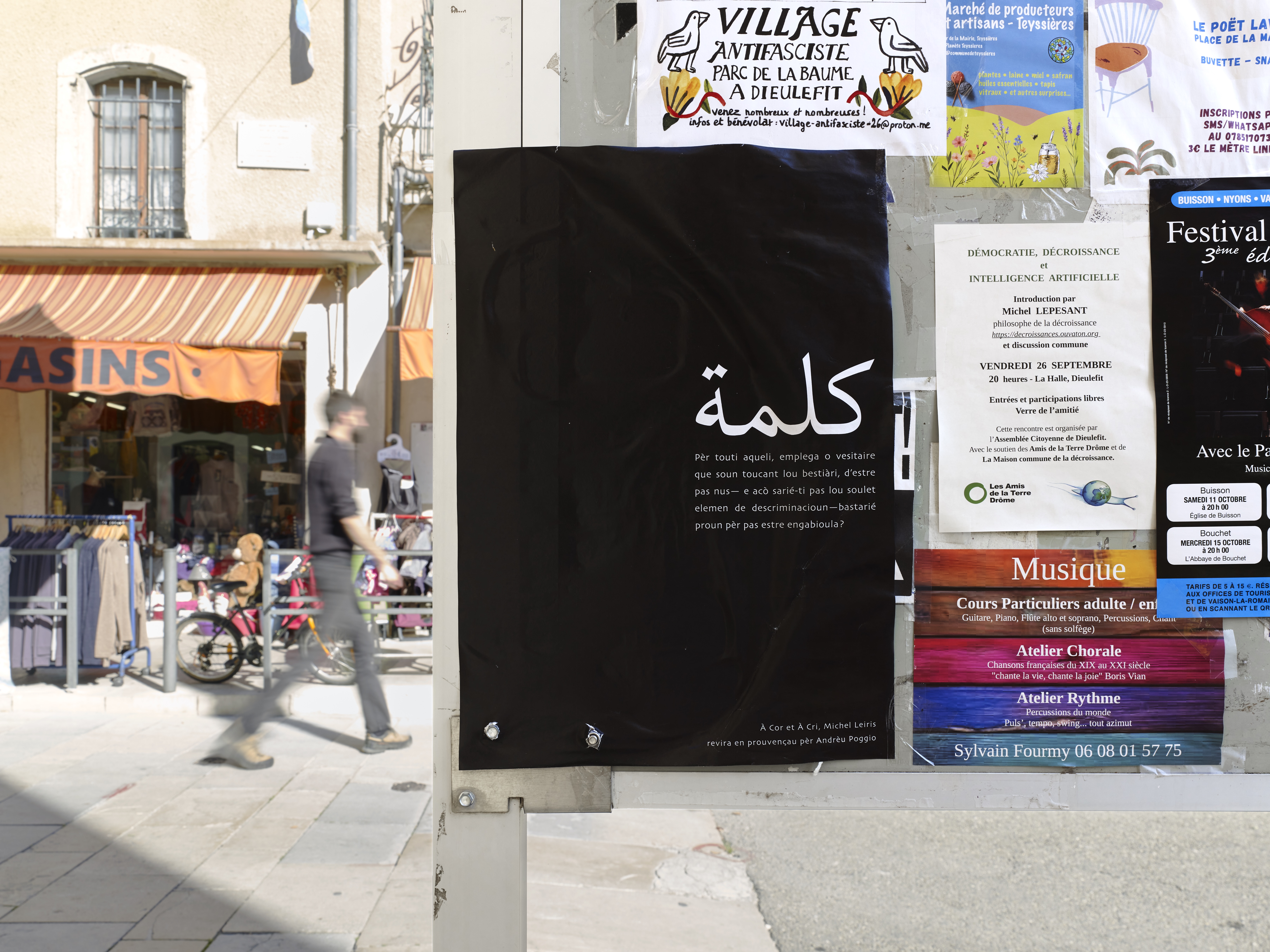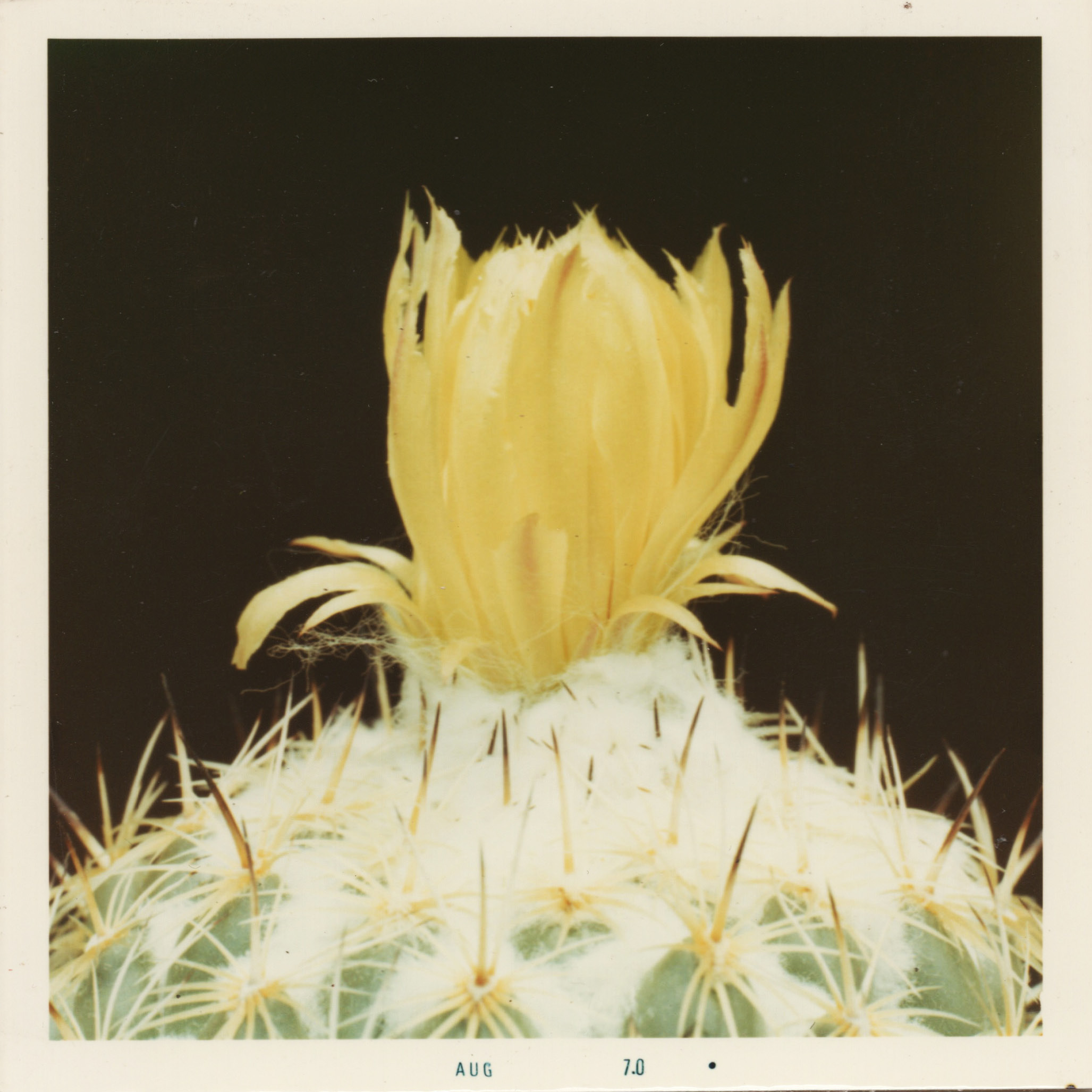The project takes its title from a Provençal expression recorded by Andréu Poggio: Vounvoun de Carriero, literally “the buzzing of the street,” the hum of rumors and words in circulation.
Its starting point was the confrontation with the game — and with its name, téléphone arabe. This title, inherited from the colonial context, wrongly associates “Arabic” with error or rumor. In the game, a message is whispered from person to person and then compared with its original version. Along this chain of oral transmission, “errors” and distortions naturally occur — both the delight and the failure of the game.
Here, however, the “error” appears at the very outset: four Arabic characters generated by default in a design software. Unable to read Arabic, the program replaces each word with these signs, which do not form a word — language is presented here as image rather than meaning. The second poster displays كلمة (word), the third الهمسات (whispers). These titles introduce a short story by Michel Leiris (À cor et à cri), fragmented across two posters and translated into Provençal by Andréu Poggio. The text follows a zookeeper reflecting on his clothes — the very thing that separates those who look from those who are looked at.
The posters appeared one month apart in the public space of Dieulefit: August 11, September 11, and finally October 11 in the Jean Jouve swimming pool.

11/10/25, Piscine Jean Jouve, Dieulefit (FR)
Photo credit: Kristien Daem

11/09/25, Dieulefit (FR)
Photo credit: Kristien Daem
11/08/25, Dieulefit (FR)
Photo credit: Christophe Guérard
Vounvoun de Carriero
Three black and white posters
appeared three months apart in the public space of Dieulefit (FR)
2025
Credits:
Concept & Poster: The LetterS pace Department
Original text: Michel Leiris, À Cor et À Cri
Translation into Provençal: André Poggio
Placement: Léane Lloret, Bastien Joussaume
Documentation: Kristien Daem, Christophe Guérard, Bastien Joussaume
With great thanks to Antoinette Jattiot, Oussama Tabti, Reinier Vrancken and Yue Yuan
“Écrire—comme jouer et dessiner—est l’acte du même à l’autre dans l’entrelacs de l’apparaître et du disparaître, du voilement et du dévoilement d’un objet innommé et innommable. Cet acte, dont l’aire de rencontre est le monde (sans que le jeu se laisse enfermer en un monde sous forme de “monde du jeu”), fait du jeu l’anti-phrase dont le corps serait le verbe. Comme si le jeu—qui donne geste au monde muet—allait toujours contre la phrase qui lie un sujet à son attribut et qui procède par prédicats en fixation de sémantèmes.”
Absence, Pierre Fédida, p.163-164

